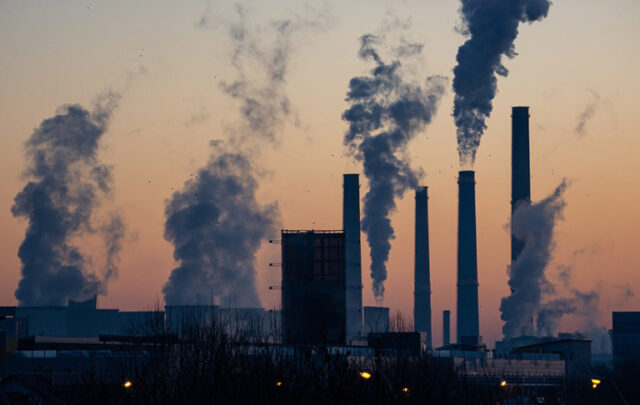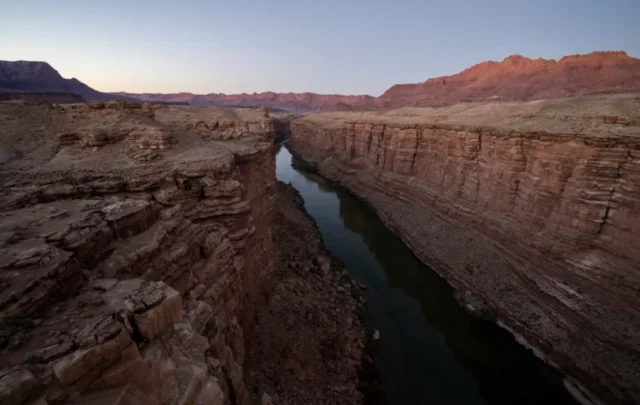Click on the headline (link) for the full text.
Many more articles are available through the Energy Bulletin homepage
Sustainable South Bronx’s Carter discusses need for green collar jobs to reduce poverty (Video)
OnPoint, E&E TV
Does the key to solving America’s poverty and crime issues lie in creating more sustainable, environmentally friendly communities?
During today’s OnPoint, Majora Carter, executive director of Sustainable South Bronx discusses the program she created in a low-income New York City community to raise awareness about sustainability.
Carter explains the role green collar jobs and sustainability can play in reducing unemployment rates, crime, and health issues around the country. She also gives her thoughts on what Congress should be doing to spur the green collar job market.
(23 October 2007)
Government money short to help poor pay heating bills
Tom Doggett, Reuters
About 30 million low-income American households who will need help paying heating bills this winter from a U.S. government program will be left in the cold because of a lack of funding for the program.
The poor, already digging deep to pay for expensive gasoline, also will face much higher heating fuel costs, especially if oil prices stay near record levels.
Consumer groups and state energy officials have sounded the alarm, saying a federal program to help poor families pay heating bills will have nowhere near the money needed to cover those expected to seek assistance.
(23 October 2007)
Energy Traders Avoid Scrutiny
As Commodities Market Grows, Oversight Is Slight
David Cho, Washington Post
One year ago, a 32-year-old trader at a giant hedge fund named Amaranth held huge sway over the price the country paid for natural gas. Trading on unregulated commodity exchanges, he made risky bets that led to the fund’s collapse — and, according to a congressional investigation, higher gas bills for homeowners.
But as another winter approaches, lawmakers and federal regulators have yet to set up a system to prevent another big fund from cornering a vital commodity market. Called by some insiders the Wild West of Wall Street, commodity trading is a world where many goods that are key to national security or public consumption, such as oil, pork bellies or uranium, are traded with almost no oversight.
Part of the problem is that the regulator, the federal Commodity Futures Trading Commission, has had a hard time keeping up with the sector it oversees. Commodity trading has exploded in complexity and popularity, growing six-fold in trading volume since 2000 — the year that a handful of giant energy companies, including Enron, successfully lobbied to get Congress to exempt energy markets from government regulation.
Meanwhile CFTC’s staffing has dropped to its lowest level in the agency’s 33-year history. Its computer systems that monitor trades are outdated. Its leadership has seen frequent turnover.
(21 October 2007)
Montana and Kansas Take on Big Coal
Editorial, New York Times
On Saturday, The Times’s business section featured two reports from unexpected parts of the country that should cheer the bipartisan coalition in the Senate that wants to move ahead quickly on legislation limiting emissions of carbon dioxide, the main global warming gas. The reports provide further evidence, if any were needed, that Congress should not listen to the coal industry’s siren call for special treatment.
One report, from Montana, described an increasingly vocal movement opposed to new coal-fired power plants on the Great Plains. The movement includes not only the usual suspects in the environmental community but also conservative and largely Republican ranchers worried about the impact of global warming on their water supply.
In addition, The Times reported that a state regulator in Kansas had denied a permit for a large coal-fired power plant because of the global warming gases it would emit. As far as anyone knows, that’s the first time that a power plant has been blocked for that reason alone.
Now it’s Washington’s turn. A Senate subcommittee will soon take up a very promising global warming bill written by Joseph Lieberman of Connecticut and John Warner of Virginia – the first step in what could be an arduous legislative journey. The bill would place a mandatory, declining cap on emissions from the electric power, manufacturing and transportation sectors of the economy. It aims to cut total emissions to 63 percent below 2005 levels by 2050, less than many scientists say is necessary but still very ambitious.
The coal industry will try very hard to weaken the bill, and it has assembled a large war chest for that purpose. Coal accounts for just over half the electricity generated in America and 30 percent of its carbon dioxide emissions. Unless ways can be found to replace coal as an energy source or to capture its emissions, the global warming game is essentially lost. More than 120 new coal-fired power plants are on the drawing boards in this country. Of those, only a small percent are likely to be equipped with technologies that could reduce emissions.
(23 October 2007)
US hopes for coal gasification ride on one project
Eileen O’Grady, Reuters
Much talked-about U.S. efforts to build a coal-fired power plant with near zero emissions are now concentrated in a single project, as the costs and difficulties of the endeavor have mounted and the stakes have risen.
FutureGen, a $1.5 billion public-private venture, aims to design and test the technology required to turn coal into a gas that can be stripped of harmful emissions, then burned to produce electricity and hydrogen. It will also capture carbon dioxide — widely blamed for global warming — and store it underground forever.
Plants that burn coal, already used to produce half the electricity consumed in the United States, were poised to make a major comeback after a decade of construction of less-polluting, natural gas-fired units. Dirtier coal regained its luster as a cheap power-plant fuel after gas prices soared in 2005 following two hurricanes that disrupted U.S. supply.
But increased worry about climate change and the potential for new laws to tax carbon emissions have created a backlash against new coal plants, which account for nearly 40 percent of all U.S. carbon dioxide emissions.
(22 October 2007)





